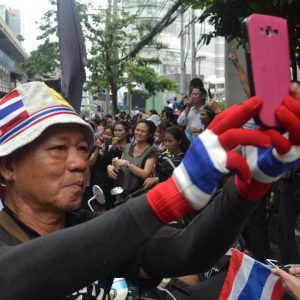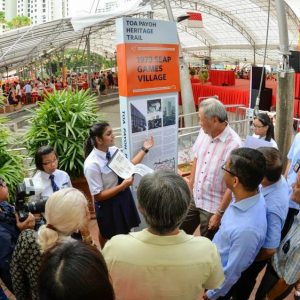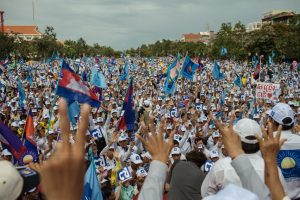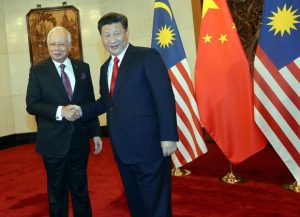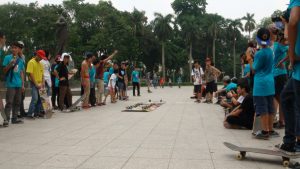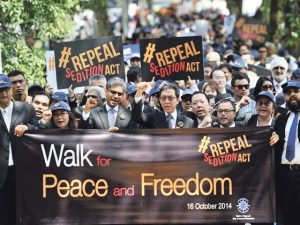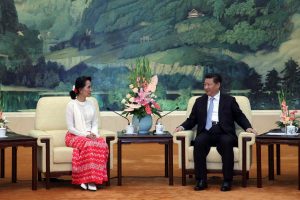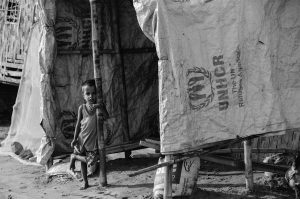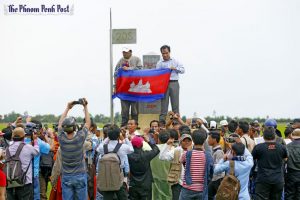Improving Political Engagement via Facebook in Thailand
Memo #400 By: Aim Sinpeng – aim.sinpeng [at] sydney.edu.au Do social networking platforms like Facebook, Twitter or Firechat improve political participation among the previously disengaged? If so, do they transcend existing socioeconomic divides in political engagement? While some see the rise of online political engagement among youths in North America and Europe, whose participation in […]
The Future of Cambodian Heritage under China
Memo #398 By: Sarah K. Youngblutt – syoungblutt [at] gmail.com Of the 193 States Parties to the UNESCO World Heritage Convention (1972), Italy (with 47), Spain (45), France (42), and Germany (41) had traditionally held the most World Heritage Sites (WHS), with half of all WHS located in Europe and North America. In recent years, China […]
Heritage-Making in Singapore
Memo #397 By: Kelvin E.Y. Low – kelvinlow [at] nus.edu.sg In 2008, the Urban Redevelopment Authority (URA) of Singapore announced that its conservation program would extend beyond buildings to include other landmarks and structures such as bridges, pavilions, and towers that were emblematic of the nation’s history and heritage. Such conservation efforts were to be […]
Current Gift-Giving Practices Devoid of Popular Legitimacy in Cambodia?
Memo #392 By: Astrid Norén-Nilsson – astrid.nn [at] gmail.com In the last national elections in 2013, the opposition Cambodia National Rescue Party (CNRP) experienced a strong surge in support, finishing a close second to the long-incumbent Cambodian People’s Party (CPP). Whilst the CNRP campaigned on an anti-money politics, rights-based agenda, the CPP has relied on gift-giving […]
China’s ambitions welcomed in Kuala Lumpur?
Memo #388 By: Phuong Nguyen – h0aiphuong.14 [at] gmail.com and Kai Ostwald – kai.ostwald [at] ubc.ca In the shadows of the headline-grabbing October announcement that the Philippines would forge closer ties with China and “separate” from its long-time ally the United States, Malaysia quietly took its own significant strides towards Beijing’s orbit. Malaysia’s under-the-radar rebalance provides […]
Skateboarders, traceurs and changes in urban space and social practices in Hanoi
Memo #385 By: Stephanie Geertman – geertman.stephanie [at] gmail.com What can skateboarders and traceurs in Vietnam tell us about new forms of social practice? Skateboarders riding along the base of a statue of Vladimir Lenin in a public park and traceurs climbing and jumping over walls in the newest middle-class communities flanking the city have become […]
Malaysia’s Bloodless Repression against Activists and Critics
Memo #383 By: Wei Lit Yew – wlyew2-c [at] my.cityu.edu.hk Where does Malaysia stand in the face of rising activism? 2013 marked the point at which the Barisan Nasional (National Front, BN) coalition government of Malaysia began constricting political space, after experiencing its worst electoral performance in its history. In 2015, the number of people investigated, charged, […]
A Pariah No More: How Over-reliance on China Spurred Myanmar’s Reforms
Memo #380 By: Jonathan T. Chow – jchow [at] umac.mo and Leif-Eric Easley – easley [at] post.harvard.edu How Over-reliance on China Spurred Myanmar’s Reforms In late 2010, Myanmar’s repressive military junta transformed itself into a nominally civilian government, over two decades after it had seized power. Upon becoming president in early 2011, former general Thein Sein unexpectedly launched wide-ranging […]
Religious Nationalism in the New Myanmar
Memo #372 By: Ian Mcdonald – ian.mcdonald [at] alumni.ubc.ca Although media depicted the November 2015 elections in Myanmar as a chance for reform in the country, the actual changes have been questionable, especially for the Muslim Rohingya in the westernmost state, Rakhine. So what have the election results meant for Muslims in Myanmar? The answer is […]
Hedging without coordination? The Cambodian Government’s Policies Toward Vietnam
Memo #369 By: Thearith Leng – thearithleng2011 [at] gmail.com Hedging, a mix of bandwagoning (political deference) and balancing (varying forms of defiance), has become a popular concept to explain how small Southeast Asian states manage their relations with larger countries. Cambodia’s policies toward its more powerful neighbor, Vietnam, display such a mixed approach. But in […]
